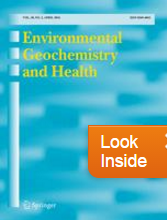 A BioMed Central journal has pulled the paper of a scientist who decided to prohibit countries that are friendly to immigrants from using his software.
A BioMed Central journal has pulled the paper of a scientist who decided to prohibit countries that are friendly to immigrants from using his software.
Recently, German scientist Gangolf Jobb declared that starting on October 1st scientists working in countries that are, in his opinion, too welcoming to immigrants — including Great Britain, France and Germany — could no longer use his Treefinder software, which creates trees showing potential evolutionary relationships between species. He’d already banned its use by U.S. scientists in February, citing the country’s “imperialism.” Last week, BMC Evolutionary Biology pulled the paper describing the software, noting it now “breaches the journal’s editorial policy on software availability.”
Many scientists have used Jobb’s software: The BMC paper that describes it, “TREEFINDER: a powerful graphical analysis environment for molecular phylogenetics,” has been cited 745 times since it was published in 2004, according to Thomson Scientific’s Web of Knowledge.
Jobb told Retraction Watch that the software is still available to any scientist willing to travel to non-banned countries, and that he does not care about the retraction: Continue reading BMC retracts paper by scientist who banned use of his software by immigrant-friendly countries
 Environmental Geochemistry and Health has retracted two papers after an investigation suggested that the peer-review process had been compromised.
Environmental Geochemistry and Health has retracted two papers after an investigation suggested that the peer-review process had been compromised.







